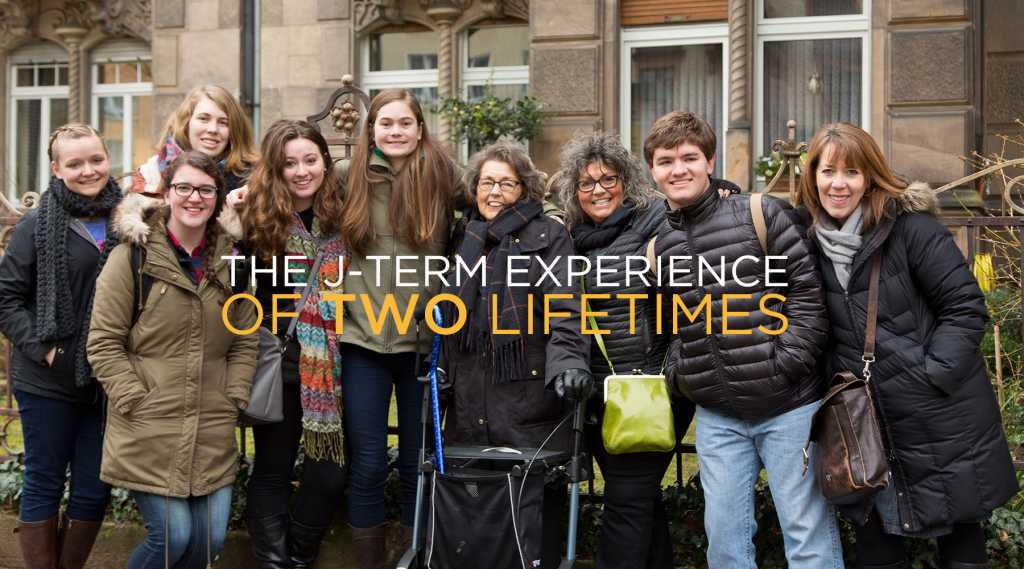Page 19 • (192 results in 0.163 seconds)
-
student must be able to communicate relevant data to clinical faculty and other healthcare professionals in a timely manner. The student must be able to ask for assistance and supervision when needed. Students are expected to be professional, responsible, sensitive, accountable, and ethical in all interactions that require communication among peer and other professionals on the healthcare team. Cognitive A student must be able to accurately elicit, measure, calculate, analyze, integrate, evaluate, and
-
the different ways that Jewish identity was understood by various groups of Jews. Students will also study the expression of Jewish identity in Jewish interactions with Gentiles (non-Jews), as well as Greco-Roman perspectives of the Jews.IHON 257: Rationalism and Faith in Victorian EnglandIn 19th-century Britain, the industrial revolution and biblical scholarship shook the established world order. The very meaning of life was up in the air. This course will illuminate the theme of rationalism and
-
Gender and Heteronormativity Faculty Mentors: Heidi McLaughlin, and Corey Cook; Psychology Our research found that participants who identified as non-heterosexual and/or female are more likely to break out of traditional gendered friendship norms and seek similar interactions within platonic and romantic relationships. This is consistent with previous research that found non-heterosexual women have more fulfilling platonic relationships than most men. Chantelle Davenport; Susan Lopez; Mollie
-

Conference for Holocaust Education and asked whether members of his family might be willing to meet with the J-Term travelers before they left. When Joe’s sister, Natalie, a current student at PLU, heard of the program, she said, “We’ll go with you!” “Suddenly we had the potential for a whole different encounter—for Kurt Mayer’s family to see students engaging with his life and the Holocaust and what he wrote, and for the students to learn more about Kurt through their interactions with his devoted
-

Conference for Holocaust Education and asked whether members of his family might be willing to meet with the J-Term travelers before they left. When Joe’s sister, Natalie, a current student at PLU, heard of the program, she said, “We’ll go with you!” “Suddenly we had the potential for a whole different encounter—for Kurt Mayer’s family to see students engaging with his life and the Holocaust and what he wrote, and for the students to learn more about Kurt through their interactions with his devoted
-
marine and freshwater systems. My teaching in the area of animal diversity includes general coverage for lower division students and invertebrate zoology. I have the pleasure of teaching both in the Pacific Northwest and the Caribbean. My research interests include ecology and biogeography, primarily in aquatic systems. Much of my past research has focused on interactions between herbivores and algae in marine systems. This has included studies of geographical gradients of herbivorous fish diversity
-
instruction and activities, so face-to-face meetings may be reduced to ensure the total workload still equals a traditional course. Blended online courses may be a mix between synchronous and asynchronous classes, meaning some of the course is self-study and some of the time the course meets together online. What is an online course like at PLU?In an online course, all instructional activities are completed through web-based interactions, with no face-to-face meetings occurring on campus. Online courses
-
-13 to work with several students on a documentary about Islamophobia. “These students grapple with professional production standards, as well as human interactions with people who live their vocations every minute.” During the 2016-17 academic year, grant recipients are conducting research in Canada, Mexico, Belgium, France, England, Ireland, Italy, Japan and Rwanda, representing research in the disciplines of education, communication, religion, history, biology, economics, music, global studies
-
loved her back.” Parker, much like the Rises who came before her, stressed the importance of teaching in a culture that’s different from your own. The trust that Weiss builds as an “honorary Namibian,” she said, leads to more authentic interactions. “You need to be adaptable,” Parker said. “From my perspective, you can really only gain those things from travel. It’s the best way to understand yourself as well as other people.” Be uncomfortable While Allison and Sam both recognize the struggles they
-
introduces the CCP’s, particularly Mao Zedong’s, views of the Yellow River, and their official policies regarding the river. It examines several CCP’s attempts to regulate the river, such as reconstructing local administrations for flood control, building massive hydroelectric dams, as well as analyzing the consequences that resulted. Through these cases, this essay explores complex interactions between nature and human actions, tensions between central and local administrations, and differences between
Do you have any feedback for us? If so, feel free to use our Feedback Form.


